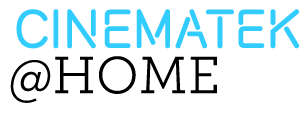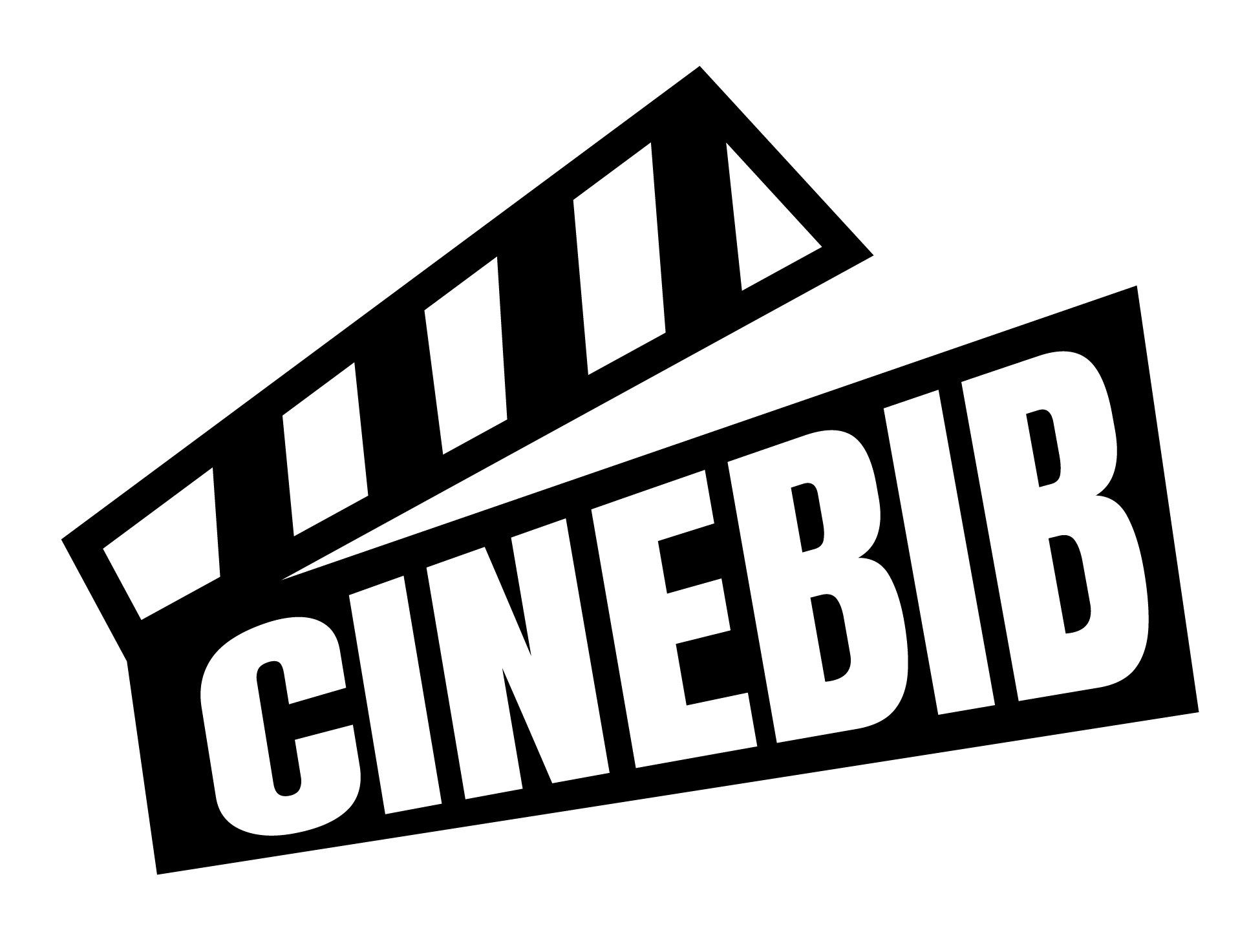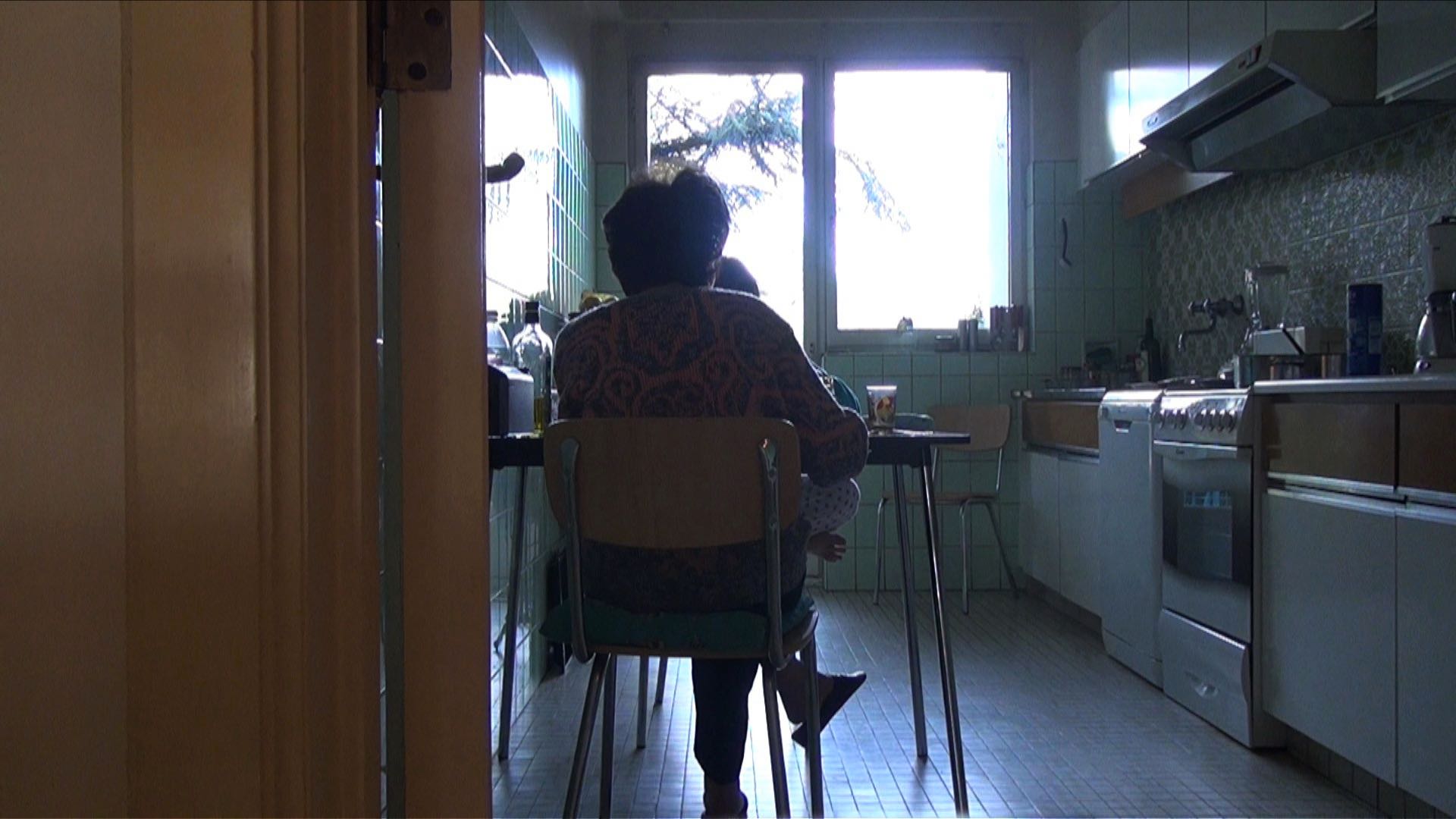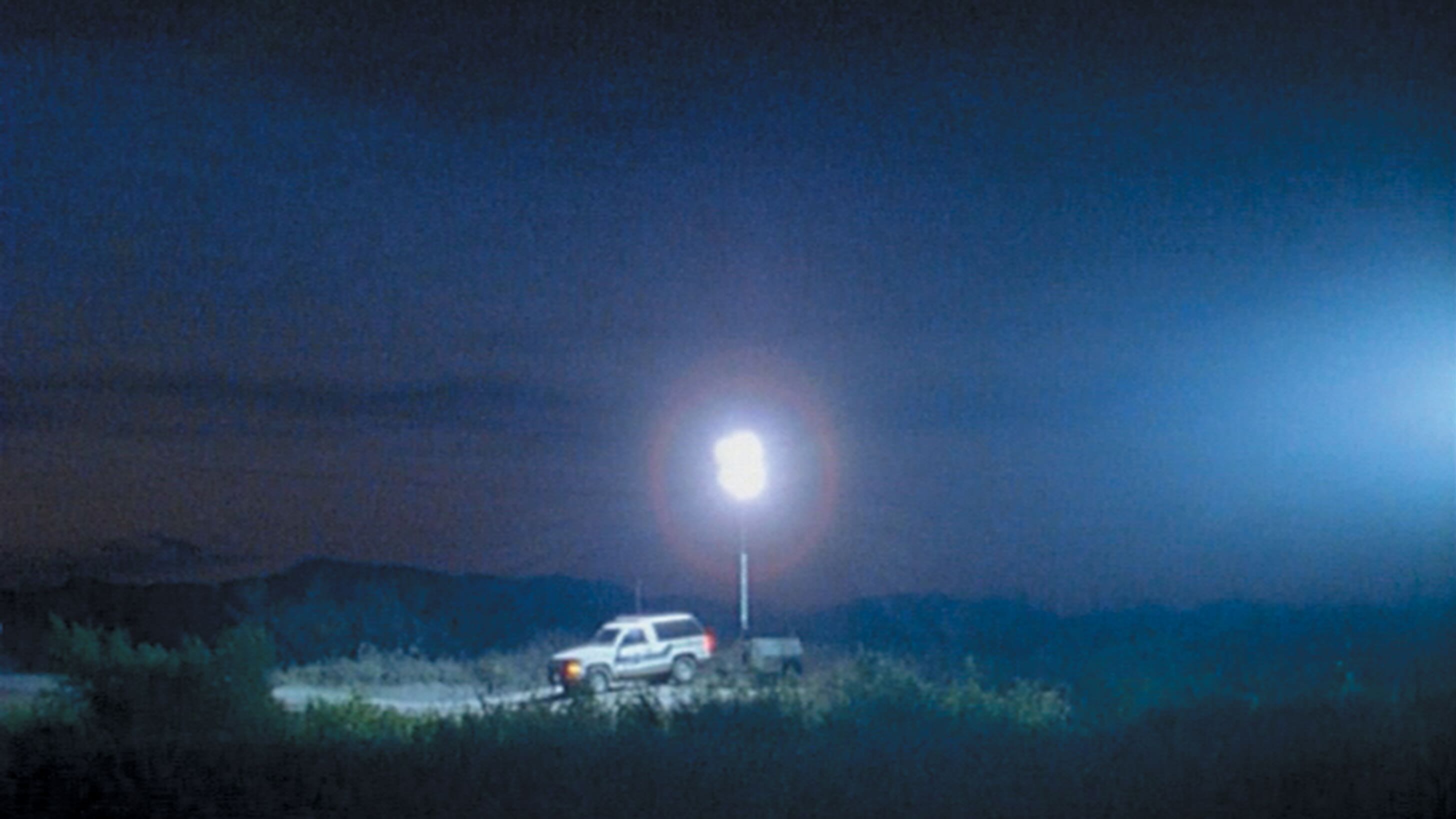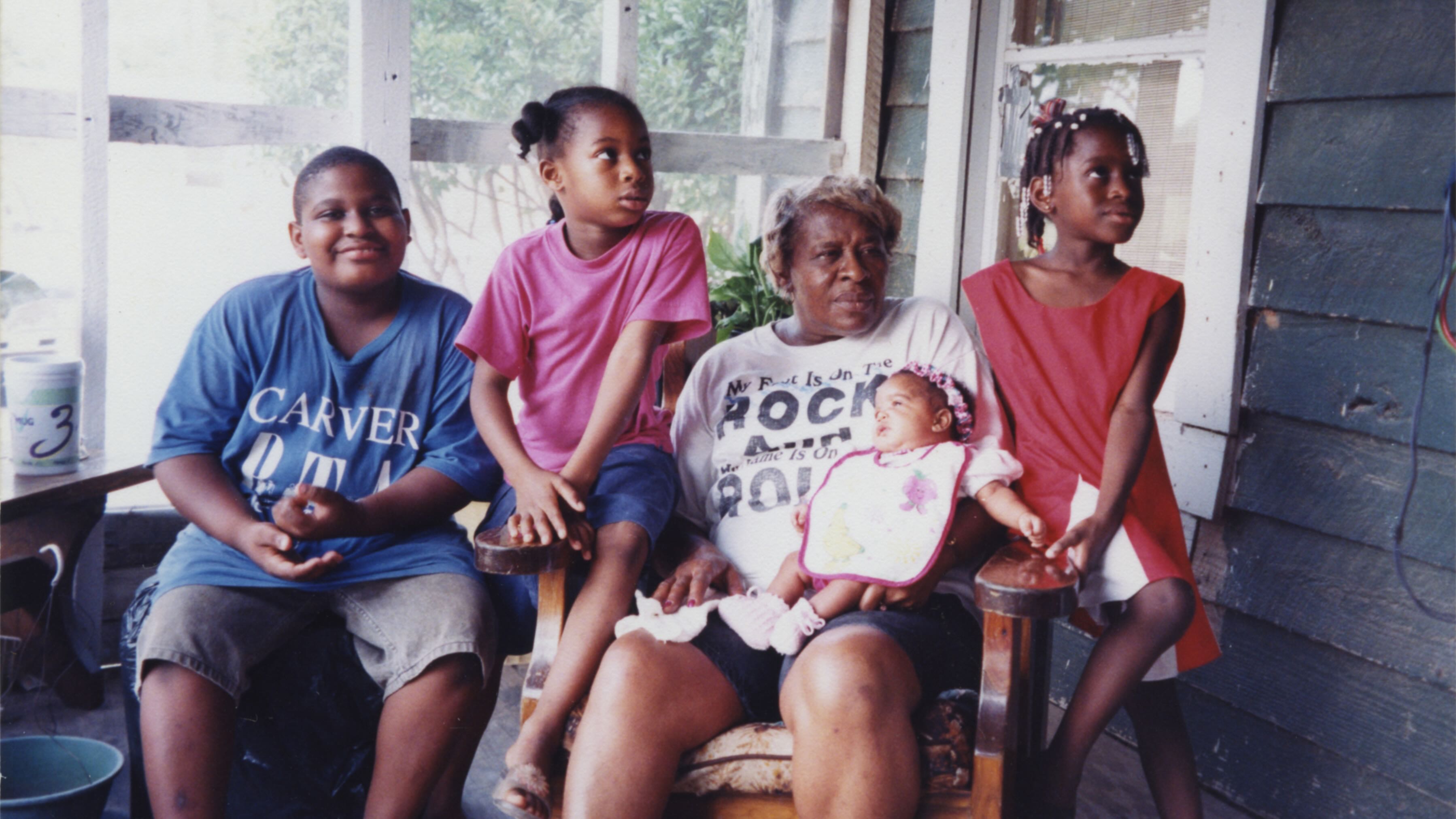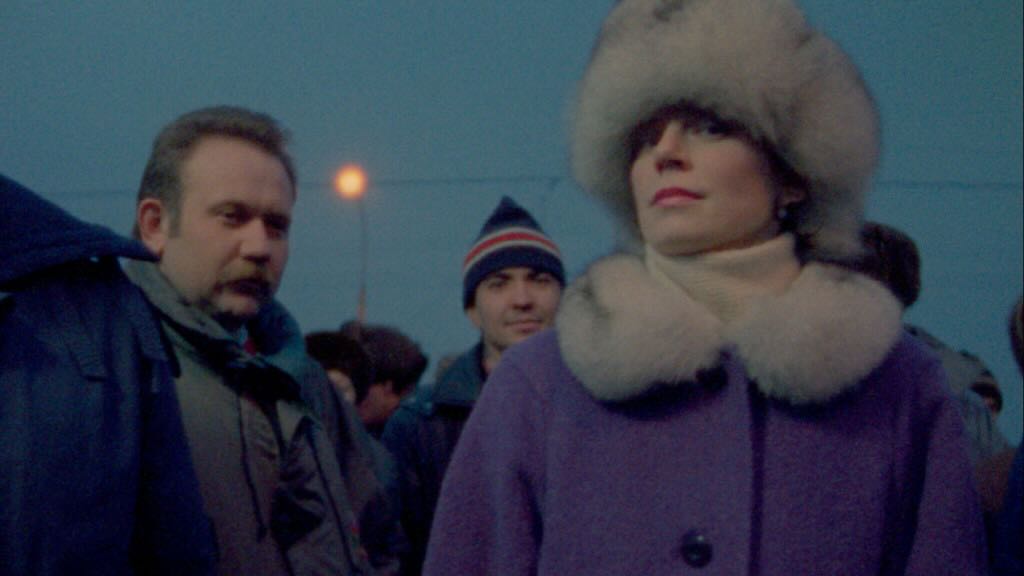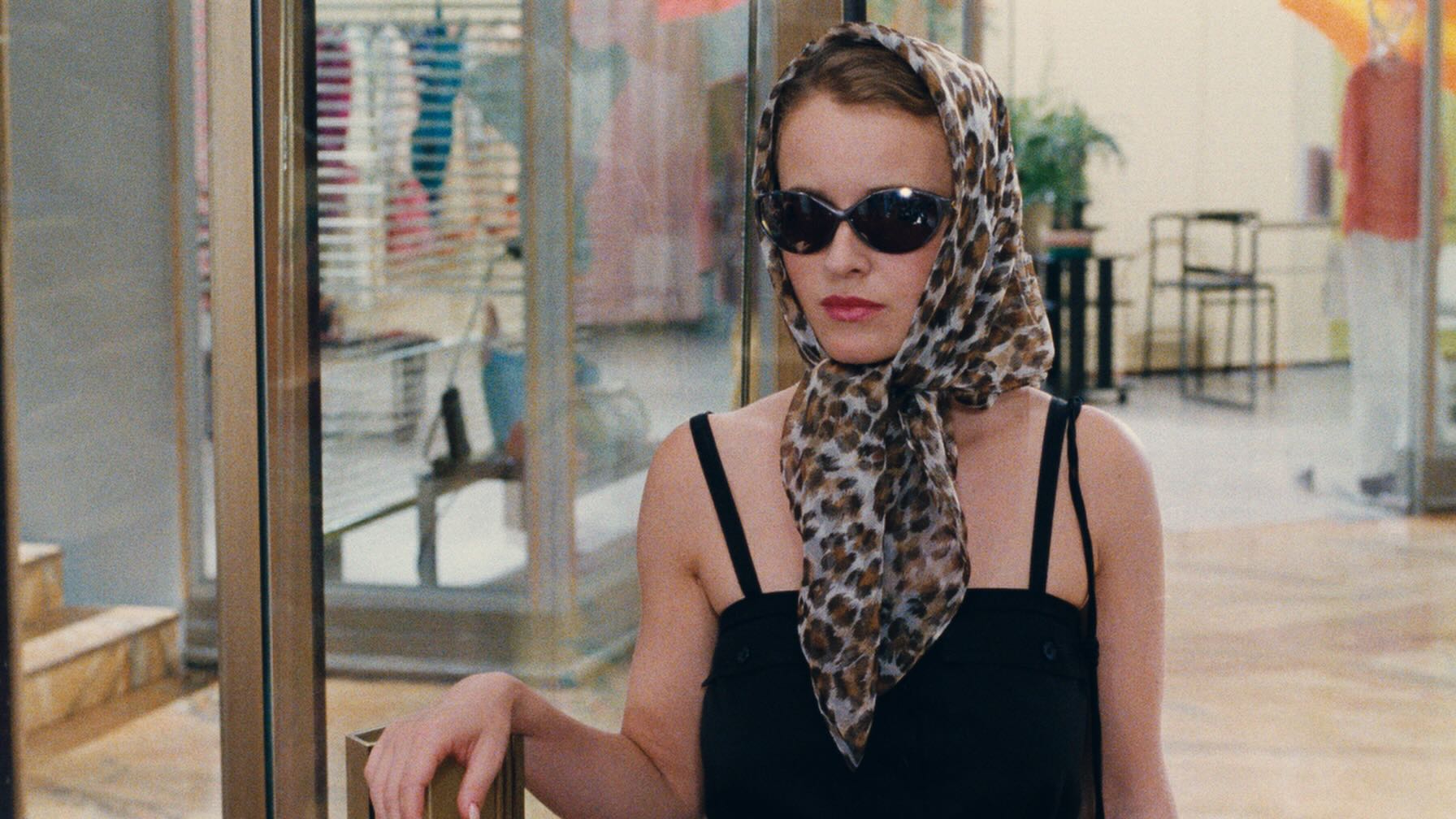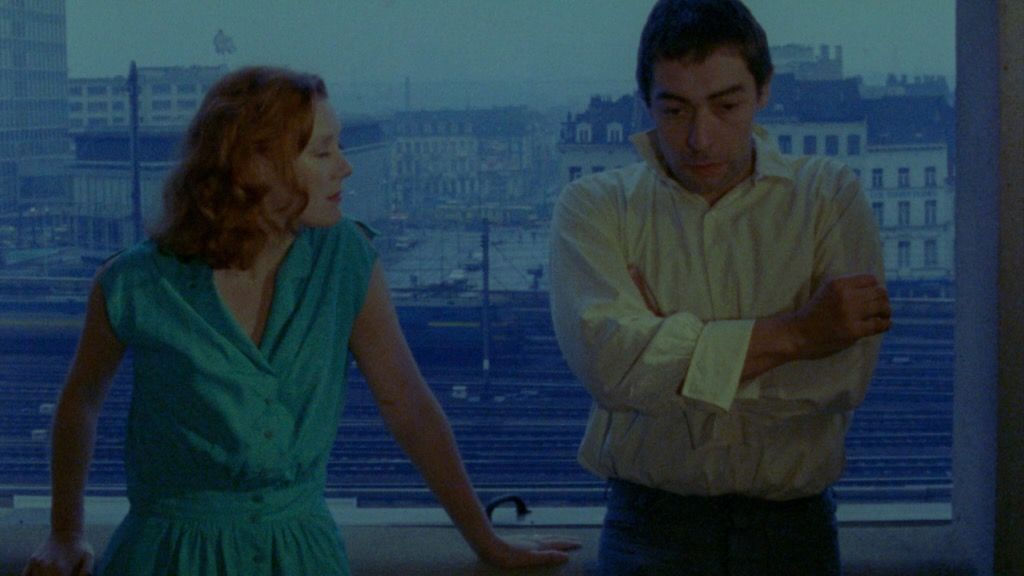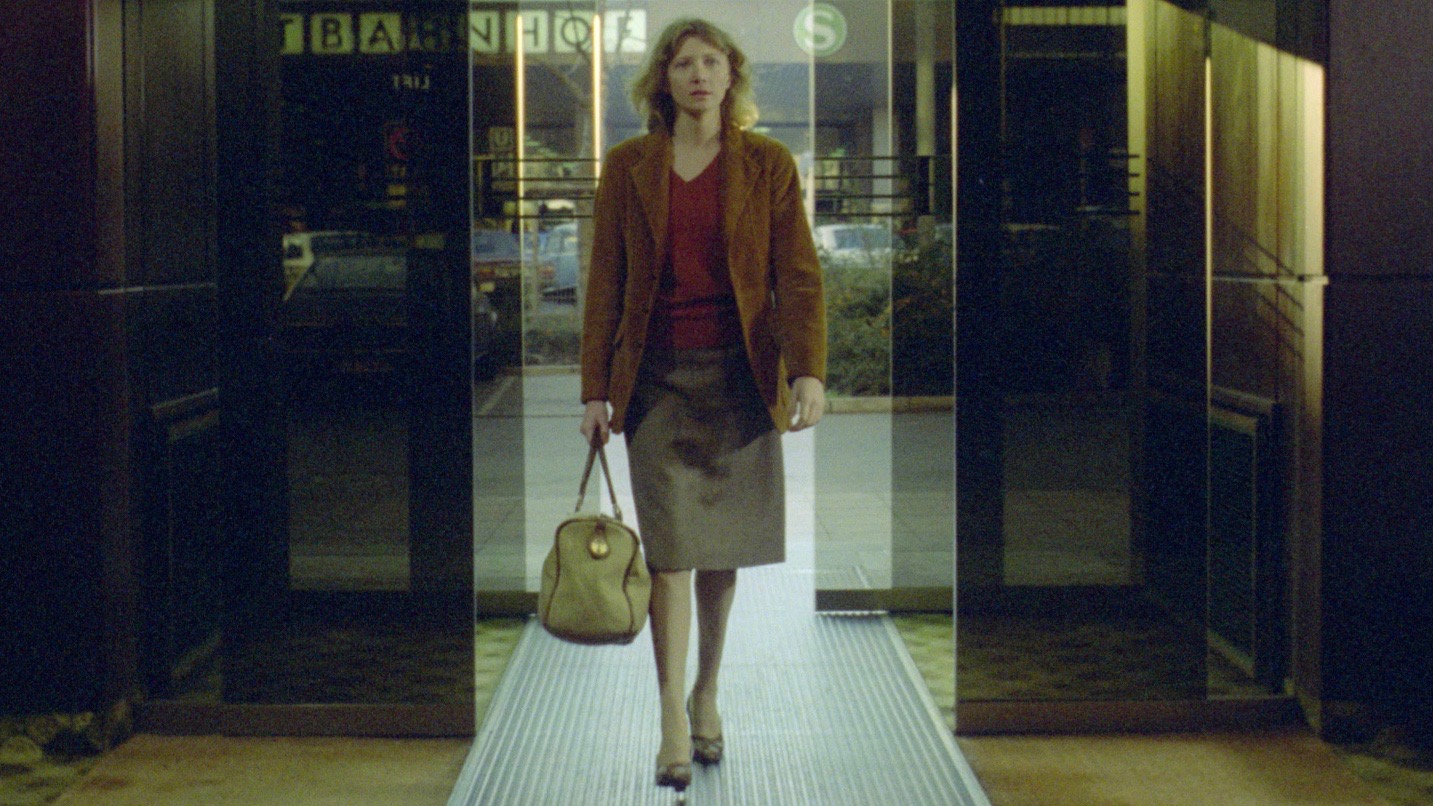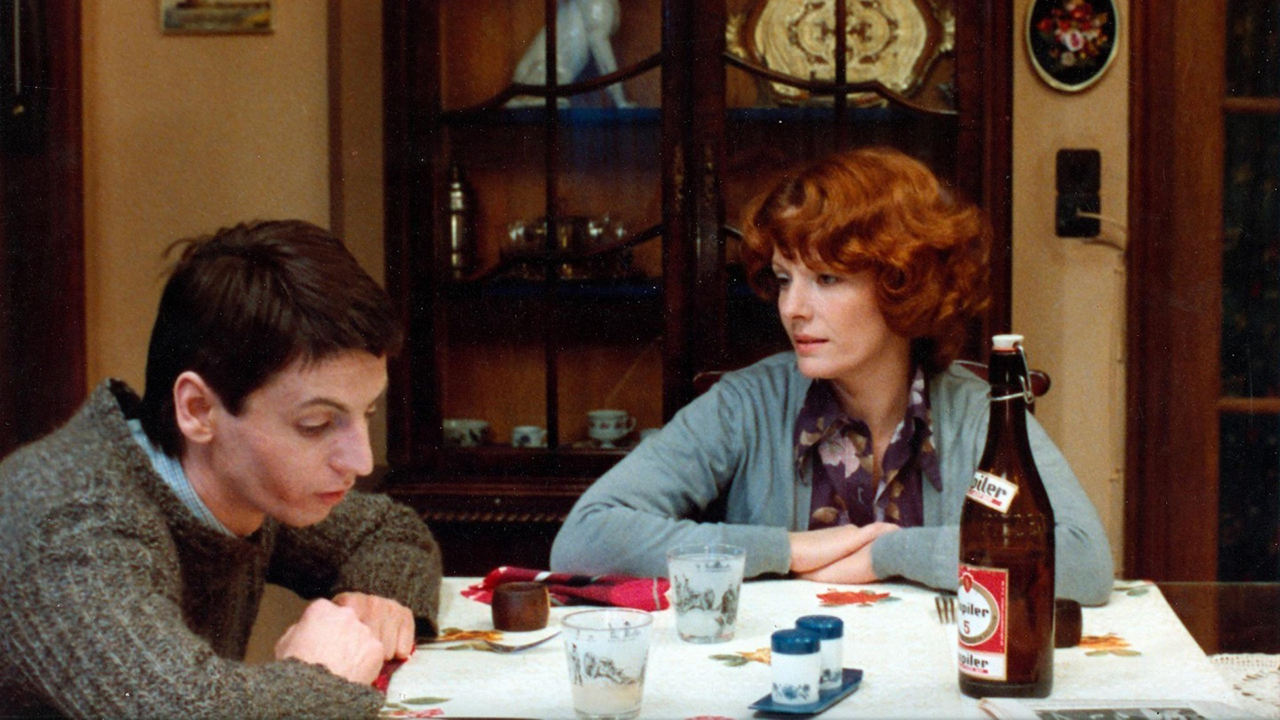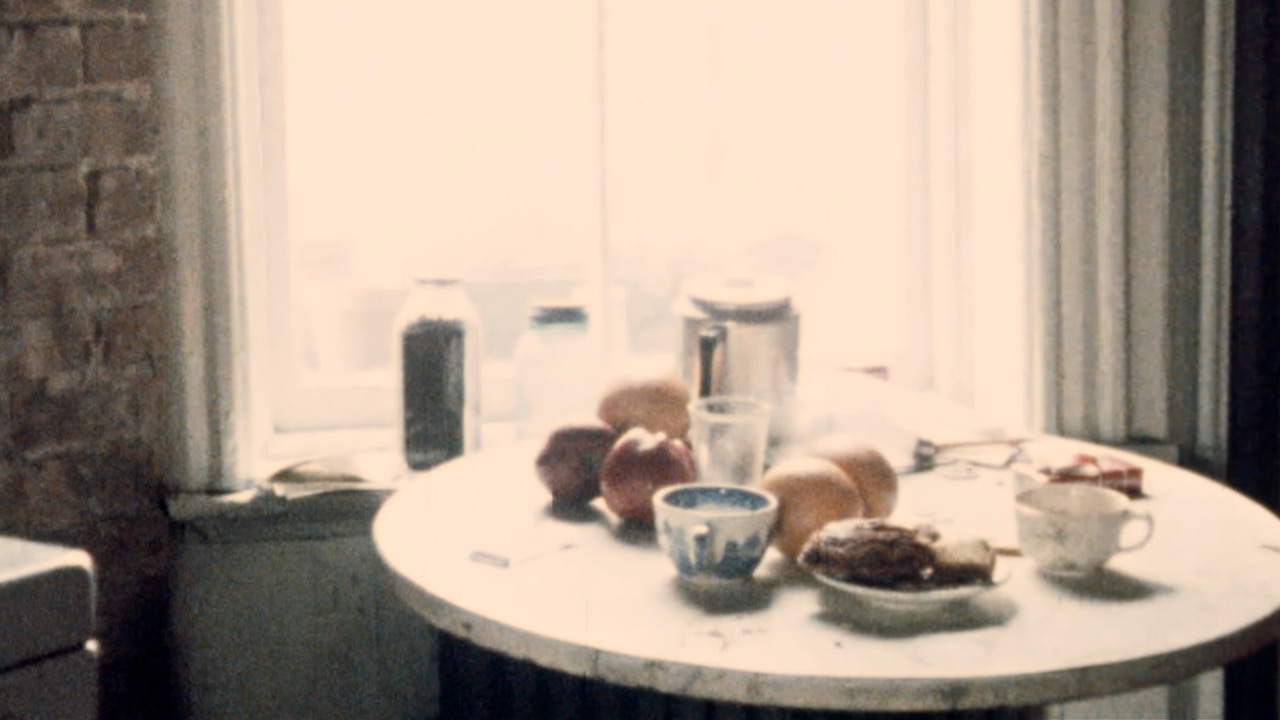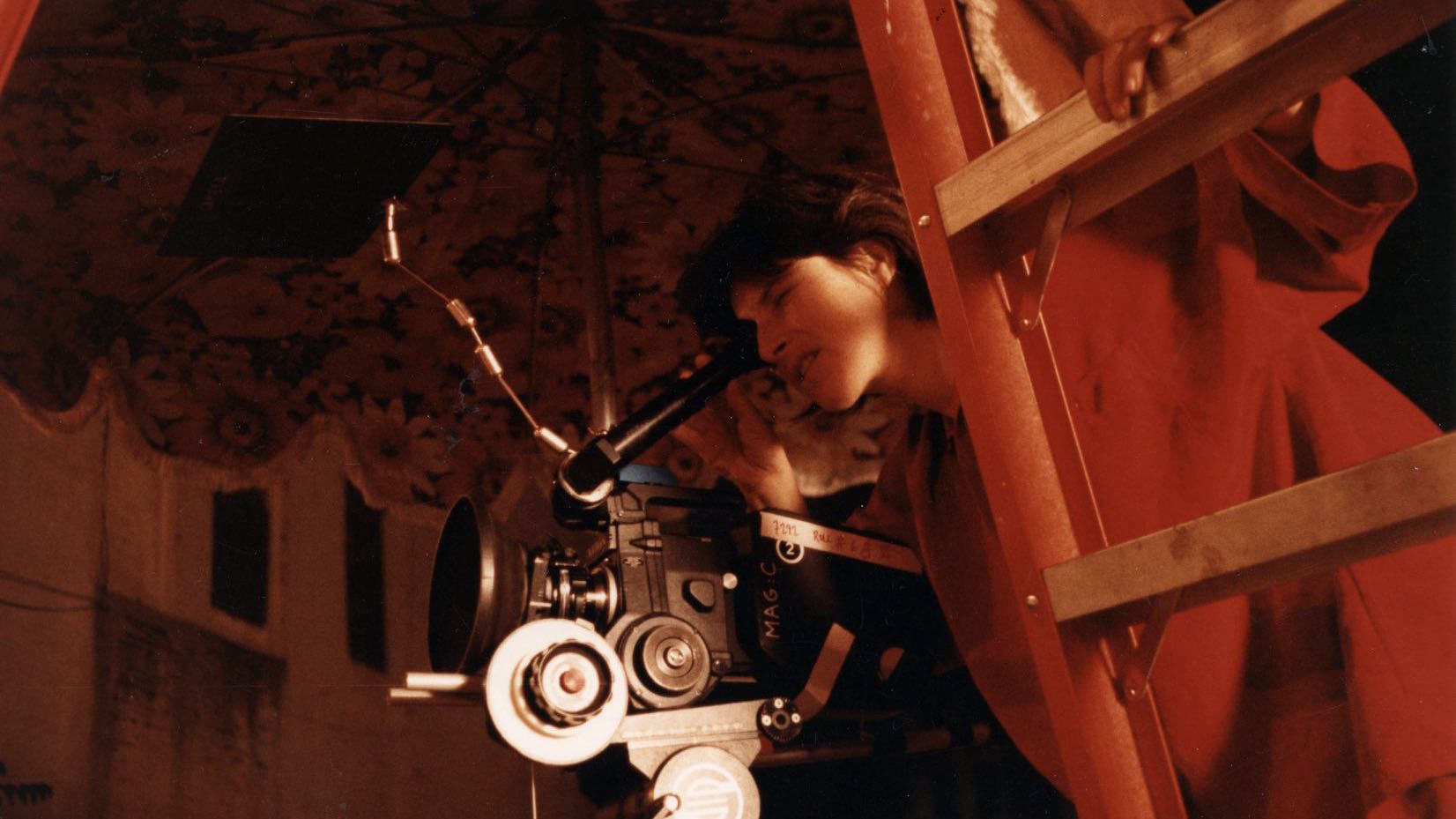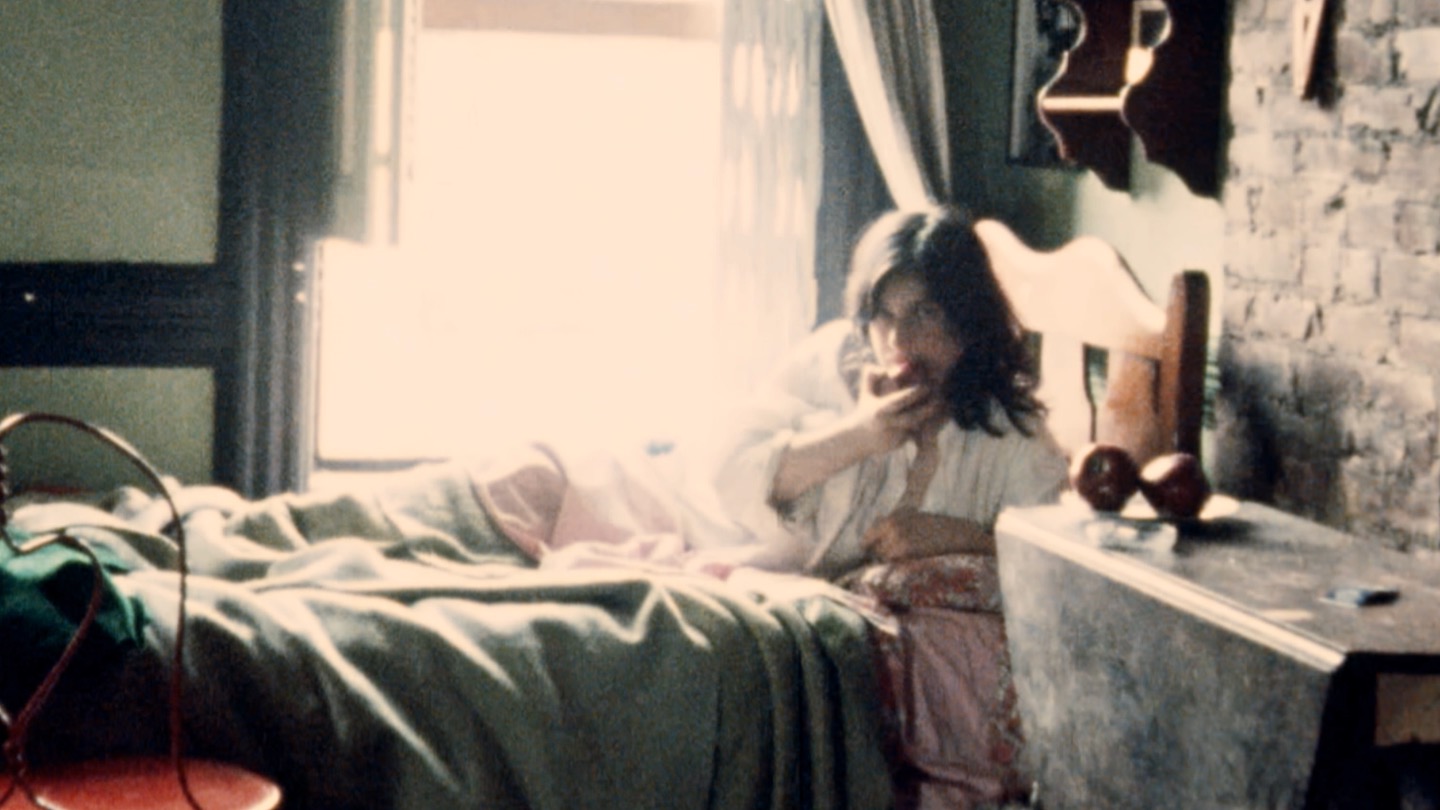A young woman confines herself to a bedroom. The presence of time dramatizes this enclosure in relation to solitude. She guzzles powdered sugar while pondering her existence, compulsively obsessing over an epic letter. She hitches a lift with a truck driver, a man who could have been a friend. At the end of the road, she goes back to the girl she really loves, for a short time. The film recounts the last three moments of a young girl's adolescence, painfully approaching adulthood, and who will have to give up something of herself to conform.
“I made Je tu il elle in 1974, but it’s based on a story I had written in ’68 or ’69, something like that. And it’s very personal. It is not autobiographical, because it is very structured; but it has some elements that I really experienced when I was younger— because, you know, I had written it in ’68 . . . It’s a film in three parts and it’s about a woman who was me, an adolescent in fact. I am playing the adolescent . . . It’s like three different trips.”
Chantal Akerman / Film Quarterly
“Chantal liked frontal shots. It was not a formal decision but a taste, almost a need. The frontal axis does not describe, does not designate, but creates a space of perception and reflection. That space is also what we worked on during editing. It is a space left to the spectators so that they can experience, feel and search. Chantal insisted that the spectators do their own work. She used to say that she wanted people to feel the passing of time in her films.”
Claire Atherton / Sabzian
“Trying to understand what Akerman is trying to say is similarly unhelpful. The film provides neither catharsis not thesis. We have left only the option of looking, listening and asking questions. When the viewer is the person asking, and then also answering, for themselves, questions that they (and possibly only they) are posing, the film comes alive. The apparent banality of the actions represented, the lack of conventional story, the long takes, are transformed into a very real density and richness.”
Tamara Tracz / Senses of Cinema
“In many of her films, Akerman portrays unconventional sexual relationships, highlighting the complexity of issues relating to gender roles, sexual difference and erotic orientation. (In a 2011 interview, she declared: “What are men and women? For the woman, it has to happen as a fantasy, it’s not sex that makes her orgasm; she can be more polymorphous, like a baby. She doesn’t need to fetishise her own sex like men do.”) While her work can easily be read as a feminist exploration of these themes, there is also a personal, idiosyncratic charge – a polymorphousness – that is too rich to fit into a reductively militant, ideological agenda.”
Cristina Álvarez López & Adrian Martin / Sight and Sound
